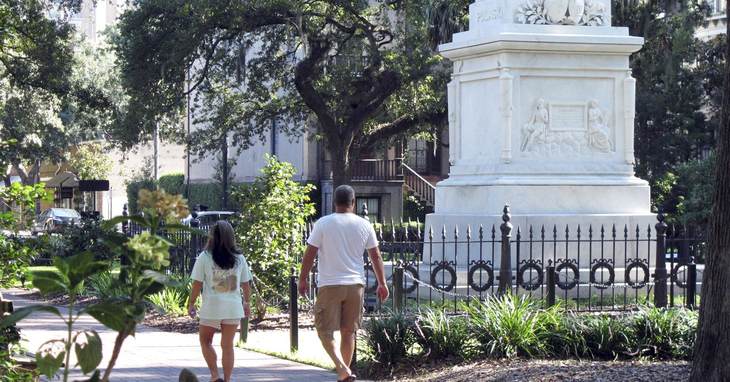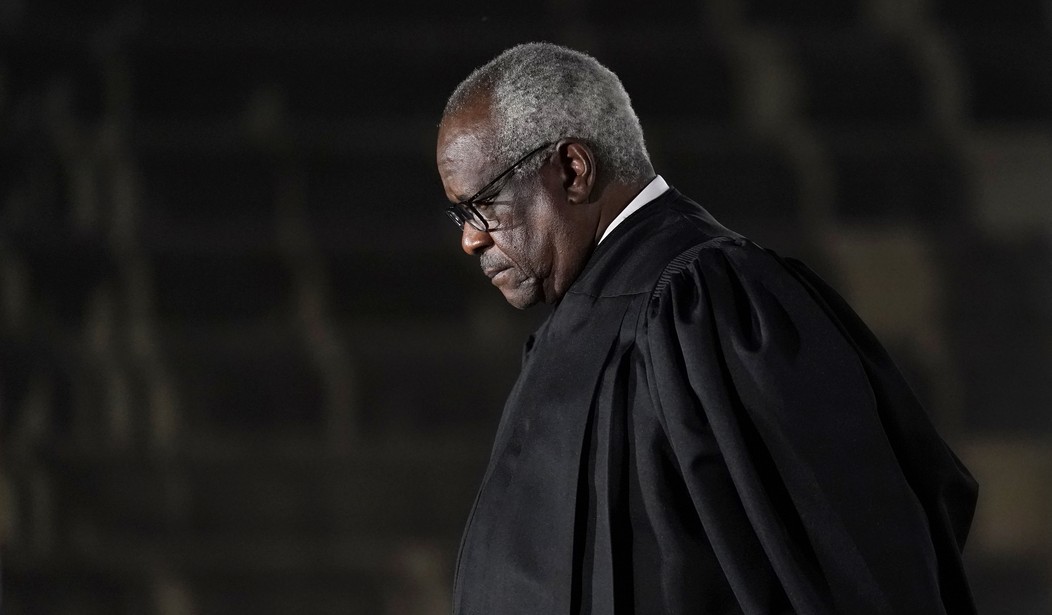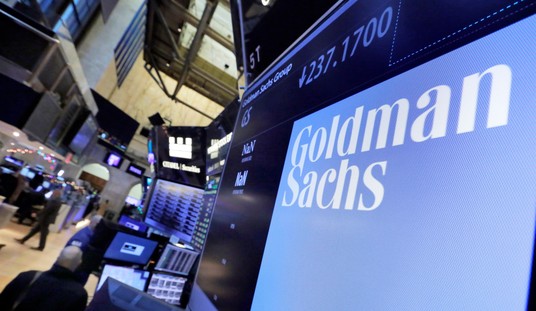Before there was Brett Kavanaugh, there was Clarence Thomas. For those of you not old enough to remember, the Clarence Thomas-Anita Hill controversy was eerily similar to the Brett Kavanaugh saga.
It was almost the same story but with a different cast: a male judge is on the verge of being confirmed to the Supreme Court when, out of the blue, a lady shows up with a bombshell accusation and no evidence to back it up. Mayhem ensues, and in both cases, the judge’s reputation is marred forever.
To this day, people still call Justice Clarence Thomas a harasser, while the term “rapist” is routinely thrown at Justice Kavanaugh. The main difference between the two cases: The ringleader of the Clarence Thomas three-ring circus was then-Senate Judiciary Chairman Joe Biden, who later famously went on to become the least-popular president in US history.
Since he was confirmed by a 52-48 Senate vote in 1991, Thomas has been somewhat of a cipher, once going a full decade without asking a question in court, and only occasionally giving speeches. Now we get to hear his thoughts in the newly released book titled “Created Equal: Clarence Thomas in His Own Words,” by Michael Pack and Mark Paoletta. The book is based on a 2021 documentary by the authors, although much of the material is new. They recorded over 30 hours of interviews with Thomas, and he takes particular umbrage at the massive liberal social programs that were supposed to improve the lives of black Americans. Regarding the state of the black community, he says simply:
It’s a disaster. When I grew up, you had family, you didn’t have drugs, you didn’t have gang-banging. You could walk down the street.
Commenting on the “well-intentioned” programs the country has introduced since his childhood in Savannah, GA:
There was a change in our society. I think that these programs certainly had an impact. Just go back to Savannah and take a look around you. Our worst fears were realized…
I’d like not to make decisions about other people’s lives, but what drags you into it is when you see these principles being undermined, which leads to such destruction. The policies destroy people, and, ultimately, I think, we’re going to destroy the very thing that allows us to have liberty and to have a free society.
I wrote last week about how former President Lyndon Johnson’s Great Society programs contributed to the fatherlessness crisis in America. Currently, we—sadly—lead the world in that category. Says Thomas:
If you look at some of the things that still are problematic, like bad education, unsafe neighborhoods, drugs, alcohol, breakdown in families, it seems like these are things that we warned about back then. We were told, basically, take a long walk on the short pier. And I understand that. I understand people not wanting to hear an opposing view. But at the same time, we’re not taking ownership of these policies’ having a significant role in the damage that’s been done.
Justice Clarence Thomas is a notoriously quiet person. But his close friend @MarkPaoletta sat down with us and gave insight into the man beyond the bench. The full interview streams exclusively on @foxnation – plus: unlock free sign-up offers only at https://t.co/voL1Yti7Mo pic.twitter.com/PsBvrYZ0zj
— Tucker Carlson Today (@TuckerToday) June 22, 2022
Thomas laments that his hometown is not the one he remembers:
The Savannah that I return to is not the Savannah I grew up in. There are good parts, you’re free to move about. You don’t have the segregation, but you’ve got pathologies that we didn’t have before. You’ve got the crime we didn’t have before. You’ve got the disintegration of families that you didn’t have before, disorder you didn’t have before. And they were things that were avoidable. You didn’t have to do that to poor people, and it’s just heartbreaking. Something has changed, so it’s kind of hard to go back.
Although the phrase “Give a man a fish and you feed him for a day; teach a man to fish and you feed him for a lifetime” is often attributed to the Bible, it’s actually from a Chinese proverb. Thomas does not directly reference the quote here, but he certainly seems to be channeling its meaning:
My grandfather would always talk about: How do you help people without turning them into wards of the state, turning them into people who don’t help themselves? He would have this line, “You help people help themselves.” And there was a difference between helping or helping to help themselves.
He then goes on to criticize the massive public housing projects that were ordained in cities like Chicago and New York:
…And yet the people who pushed it never say, “Oh, we made a mistake.” And they never take account of the fact the damage they did to the people with their grand experiment, the gangs they created, the drug dealing they accommodated, the destruction of the family that was exacerbated. All this was not necessarily caused but at least influenced in the wrong direction by the artificiality of the neighborhoods they created.
His grandfather’s words had a deep effect on him as he witnessed neighborhoods being torn down by well-intentioned politicians:
…So when they started tearing down some of the dilapidated houses in our neighborhood, he (my grandfather) said “Boy, they’re tearing down neighborhoods and building buildings.” That phrase has just stuck in my mind. There’s a difference between a neighborhood and a building. And it may be a subtle difference, particularly when you’re young, that you miss. But as life goes on, you see that a building and a neighborhood are two entirely different things. You can have really nice buildings and a horrible neighborhood, and you can have awful buildings and a wonderful neighborhood. And that was his point about our neighborhood. Our neighborhood was fine. But geniuses came in — the experts — and started tearing down buildings and tearing up the neighborhood.

Thomas has many other thoughts, more than I can fit here. What’s clear is that he’s a fascinating individual, one whose voice is powerful. We haven’t heard enough from him because A) he’s a naturally reticent man and was so deeply wounded by his depraved, Biden-led confirmation process that he clammed up for decades, and B) the mainstream media doesn’t like him because he’s a black conservative, so they rarely shine their spotlight on him.
If you’ve followed my travel (hell) adventures recently, you’ll know that I was stuck in Savannah for several days. There are worse places to be stuck; I actually love the city and had a great time. But nowhere did I see a single mention of Clarence Thomas—not in the airport, where there were tributes to all sorts of Savannah luminaries, not in the numerous parks where there were statues of seemingly every other citizen, not in the endless guidebooks. It was only as I was writing this that a remembered he was a Savannah native. It’s as if he didn’t exist. It must be terribly lonely to be a black conservative in today’s America.
You rarely hear such profound criticism of the liberal agenda and its effect, especially from someone who lived through it. Thomas is an important voice, and I hope we hear more from him in the future.














Join the conversation as a VIP Member